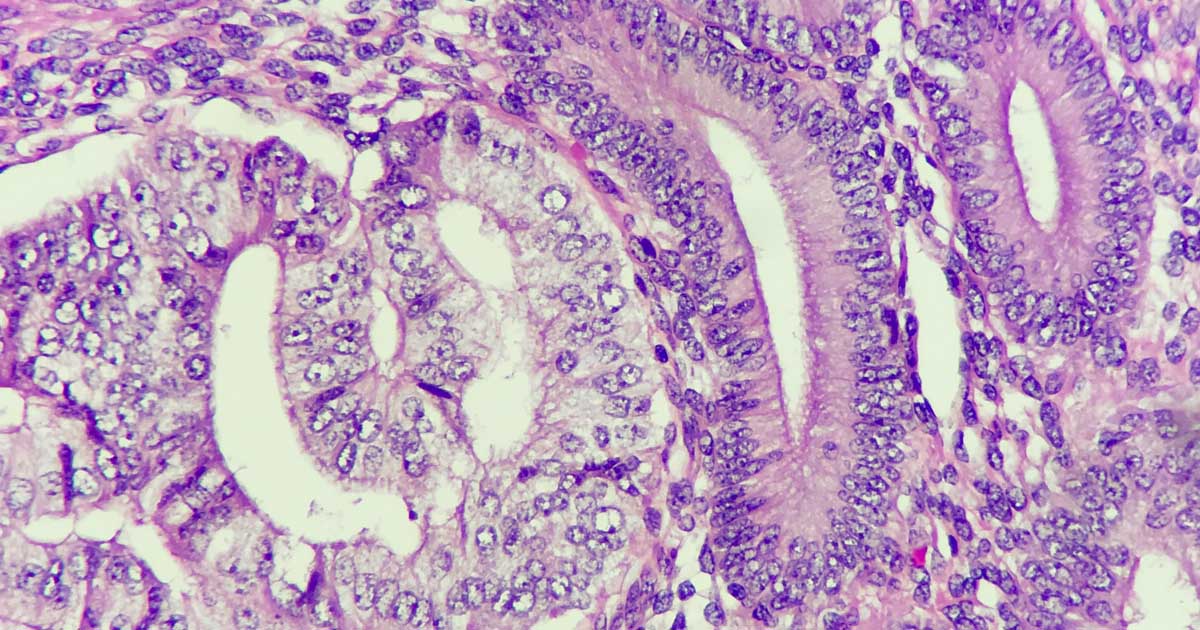The addition of pembrolizumab to chemotherapy as adjuvant therapy did not confer significant improvement in DFS compared with placebo in women with newly diagnosed, high-risk endometrial cancer.
The randomized phase 3 KEYNOTE-B21 trial evaluated pembrolizumab (Keytruda, Merck) — a PD-1 inhibitor — as part of an adjuvant treatment regimen, with or without radiotherapy, in women who already underwent curative-intent surgery. The study failed to meet its primary efficacy endpoint during an interim analysis that determined the regimen “did not meet the study’s pre-specified statistical criteria for DFS compared to placebo,” according to a release from the manufacturer.

The phase 3 KEYNOTE-B21 trial did not meet its primary endpoint of improving DFS as adjuvant therapy for certain women with endometrial cancer. Image: Adobe Stock.
“While these results were not what we had hoped, we are focused on continuing to build on the established role of Keytruda in advanced endometrial carcinoma through our approved indications, while rapidly progressing clinical research evaluating Keytruda-based combinations and other investigational candidates, including antibody-drug conjugates, in endometrial and other types of gynecologic malignancies,” Gursel Aktan, MD, PhD, vice president of global clinical development at Merck Research Laboratories, said in the release. “We would like to thank all the patients, the investigators and our study collaborators for their participation in this trial.”
The double-blind KEYNOTE-B21 trial to assessed the efficacy of adjuvant treatment with pembrolizumab plus chemotherapy compared with placebo in 1,095 women with newly diagnosed, high-risk endometrial cancer following surgery.
DFS and OS served as the study’s primary efficacy endpoints, with a secondary endpoint of safety.
Study participants received either 200 mg pembrolizumab or placebo every 3 weeks for six cycles plus concurrent standard-of-care chemotherapy, followed by 400 mg pembrolizumab or placebo every 6 weeks for an additional six cycles, with or without radiotherapy.
The safety profile of pembrolizumab in the KEYNOTE-B21 trial remained consistent with previously reported studies, with no new safety signals, according to the release. Merck said it plans to work with study investigators to share data from the trial with the scientific community.
